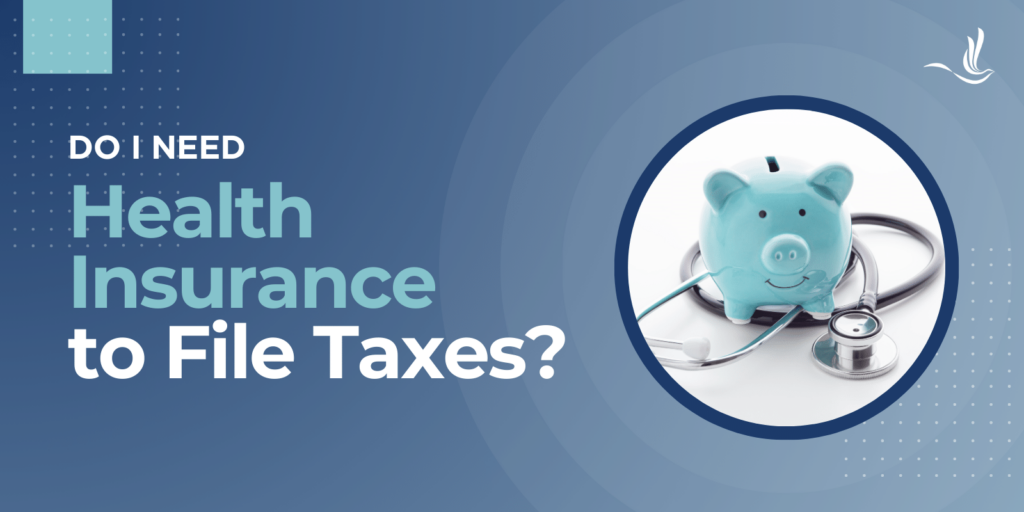
Filing taxes can be a complex and daunting task, with various rules and regulations to consider. One common question that often arises is whether you need health insurance to file taxes. The answer to this question is intricately tied to the Affordable Care Act (ACA) and its provisions. In this article, we’ll explore the relationship between health insurance and tax filing to help you better understand your obligations and options.
The Affordable Care Act (ACA)
The ACA was signed into law in 2010 with the aim of making healthcare more accessible and affordable for Americans. One of its key provisions was the individual mandate, which required most individuals to have health insurance coverage or an exemption or face a penalty when filing their federal taxes.
If you did not have health coverage, you were required to pay the greater of two amounts:
- 2.5% of your total annual household income above the tax filing threshold
- $695 per adult and $347.50 per child under the age of 18, up to a maximum of $2,085. If you or anyone in your household was uninsured for part of the year, you would’ve been penalized 1/12 of this annual amount for every month you were uninsured.
However, you could qualify for an exemption from the penalty if you were uninsured for less than three months. Other exemptions included having too little income, religious objections, being incarcerated, or being overseas. Any penalties were added to tax liabilities or reduced tax refunds.
The Tax Cuts and Jobs Act (TCJA)
However, in 2017, the Tax Cuts and Jobs Act effectively eliminated the individual mandate penalty, starting in tax year 2019. This change means that you are no longer penalized for not having health insurance coverage when filing your federal taxes. So, from a federal tax perspective, you generally do not need health insurance to file your taxes as of 2019.
State Mandates
The federal penalty for not having health insurance has been eliminated. However, it’s important to note that some states have implemented their own individual mandates. These state-level mandates may require residents to have health insurance or pay a penalty when filing state taxes. Several states have individual mandates in place, including California, Massachusetts, New Jersey, Washington, D.C., and Rhode Island.
Health Insurance and Tax Benefits
While you may not be required to have health insurance for federal tax purposes, there are some tax benefits associated with having coverage. These benefits include:
- Premium Tax Credits: If you purchase health insurance through the Health Insurance Marketplace (also known as the Exchange) and meet certain income requirements, you may be eligible for premium tax credits. These credits can lower the cost of your monthly premiums.
- The Premium Tax Credit Reconciliation: If you received premium tax credits during the year but had a change in income or family size, you’ll need to reconcile those credits when you file your taxes. This can result in either additional tax credits or repayments, depending on your circumstances.
- Health Savings Accounts (HSAs): Contributions to HSAs are tax-deductible, and withdrawals used for qualified medical expenses are tax-free. If you have an HSA, it can provide tax advantages when it comes to healthcare expenses.
- Medical Expense Deductions: If you have significant medical expenses that exceed a certain percentage of your adjusted gross income (AGI), you may be able to deduct them on your tax return. Having health insurance can help cover some of these expenses, making it easier to reach the threshold for deductions.
Tax Help
In summary, you generally do not need health insurance to file federal taxes since the individual mandate penalty was eliminated in 2019. However, it’s essential to be aware of state-level mandates if you reside in a state that has implemented them. Additionally, having health insurance can provide tax benefits such as premium tax credits, HSA deductions, and potential medical expense deductions. Tax laws and regulations can change. That said, it’s advisable to consult a tax professional or use tax preparation software to ensure you are meeting all of your tax obligations. Doing so will also help you take advantage of any available benefits related to health insurance. Staying informed and seeking expert advice can help you navigate the ever-evolving landscape of healthcare and taxes. Optima Tax Relief is the nation’s leading tax resolution firm with over a decade of experience helping taxpayers with tough tax situations.
If You Need Tax Help, Contact Us Today for a Free Consultation